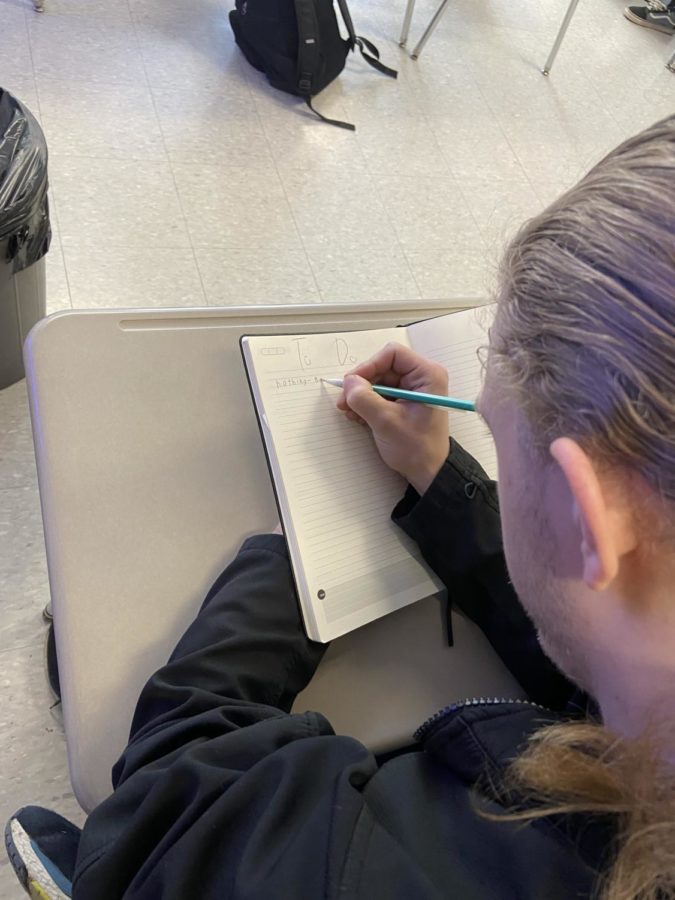Making a Senior Year Bucket List Might Just Change Your Life
September 5, 2023
Senior year loomed over me as I walked out from my last day of junior year. It was a mesmerizing realm of possibility. I could join new clubs, attend defining high school events like prom, and capitalize on a myriad of new opportunities—but it was frightening. I had no idea what I actually wanted to do. My dream of senior year changed from a paradise of choice to an avalanche of “what ifs,” “I can’ts,” and “nevers,” but all of that washed away when I realized the utility and helpfulness of creating a bucket list.
Organizing your thoughts and goals through a bucket list is a better use of time than you might think at first. While it can be helpful to have a to-do list and follow it to a T, a senior year bucket list finds its significance in sitting down and deciding what’s important. “In senior year’s case, it’s your final year. If you shape it right then hey you can make it pretty good,” said Caspian Hayden ‘23. “But if you get an unlucky roll you have to slide with what you’ve got until you make it to the end.” Having a blueprint or a concrete idea of what you do and don’t want to pursue opens up and refines your goals, but then comes the problem of filling it up.
A natural instinct we have when faced with a new opportunity is to say no. In a surviving-the-caveman-times mindset, it makes total sense. Change is scary, and if you’re safe now, why take a chance to disrupt that? However, in a high-school-during-the-information-age mindset, saying yes is usually the right call. In an article on the topic, Forbes magazine said “Saying yes opens you up to new challenges and opportunities… Saying yes invites collaboration… [and] Saying yes makes life more fun.” In a very general sense, saying yes adds new things to your life, which is exactly what many rising seniors are looking for in a senior year.
Some seniors, myself included, have felt the regret that comes with looking back on experiences and felt a totally different flavor of “what ifs”. Instead of “what if something goes terribly wrong at that party?” seniors find themselves wondering “what if I took that class, asked that question, or took that chance?” Josh Scalia ‘23 said, “ I wish I could’ve done a lot more and have had a more concrete goal.”
Just like saying no, that regret is a very natural thing. Even if you lived a perfect life there would still be feelings of regret, especially in high school, but that doesn’t mean you shouldn’t make senior year something to be proud of.
To all you rising seniors out there, maybe a bucket list isn’t your style, but put some thought toward who you want to be when the year is said and done. Taking steps like this is an important part of making that person the best that they can be.













![Students in Archaeology use tools in a mock excavation. As a class that focuses on hands-on learning, students are able to gain crucial life skills. “[The class] is more hands-on than I thought, and I'm learning way more with physical activities than I do in the classroom,” said student Tess Brown ‘25.](https://cavchronline.com/wp-content/uploads/2024/11/IMG_8390-e1733078359165-278x300.jpg)
